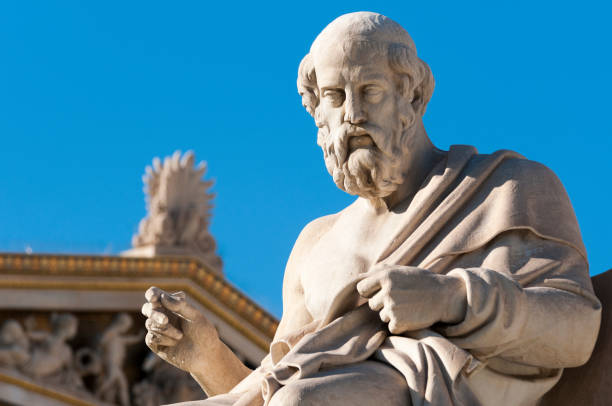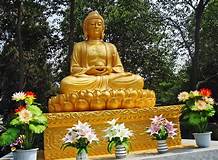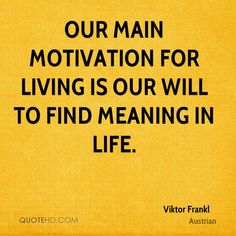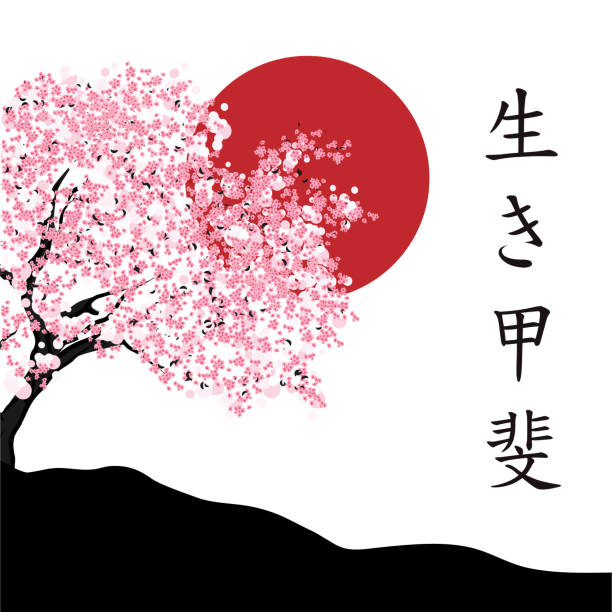When I entered prison, I did not imagine being here 7 years later, or still alive. People talk about how it feels to hit rock bottom but this was a dimension below even that, like Orpheus in the underworld. I owe part of my survival to the amazing support I have received from Prisoners Abroad working through our embassy, and friends and family on the outside. The other part I owe to a complete mental readjustment I have had to make. This has been possible not only through the reading of mental health self-help texts and the practice of meditation and yoga, but by acquiring a basic understanding of different philosophies which have sustained those in the most terrible situations throughout the course of history.
I wish to share some of them with you and hope you find beneficial. I appreciate that not everyone will agree with the ideas outlined here.
1) Choose your friends carefully (Plato)

The works of Plato are still being read after 2400 years. His mentor was Socrates, who was given the death penalty for corrupting the youth of his day and refusing to worship the gods. Socrates, although the true founder of western thought, did not actually write anything.
An important lesson from Plato was to choose our friends carefully, since bad ones can exert a lot of negative influence over us. A good friend will always support us come what may. I would be surprised if there is a single prisoner anywhere who has not been abandoned by someone he had always thought of as a good friend, partner or relative. In prison, we are in a uniquely difficult situation since we cannot just walk away from our cellmates. However, we can choose to be cordial with everyone without compromising ourselves. We should also try to become reliant on ourselves rather than on any one person. A lot of us will have experienced that feeling of loss and sadness when a close associate is released.
Plato also wrote that there are two kinds of problems: problems that we can solve, and ones that we can do nothing about. If a problem is one of the latter types, we need to accept the fact and adjust our lives accordingly.
2) Change is inevitable (Buddhism)

I should start by saying that Buddhism is as much a philosophy as it is a religion. Many westerners use it as a guiding principle without ever entering a temple or monastery.
We have all heard the famous saying ‘and this too shall pass’. Buddhism teaches the impermanence of all things. Nothing is fixed in life or in the world. We know this also from modern physics – quantum mechanics teaches us that at the level of atoms and molecules, there are no fixed entities, only a perpetual flux of processes. A lot of unnecessary suffering is caused by holding on to a fixed view of ourselves and of how things should be. If we let go of that, and accept the truth that everything is constantly changing, then we stop trying to reach some mythical place where ‘everything is always fine and dandy’. This helps us to accept and deal with our present situation with equanimity and a greater sense of realism and insight.
For myself, the knowledge that the universe is not static is very helpful. Nobody can foretell the future but unexpectedly good things can happen. New evidence can get a wrongful conviction overturned; the Appeals Court can rule in our favour; early parole can be given; pardons can also be granted. We should never, ever give up hope of a positive change to our misfortune.
The Buddha was a prince from a wealthy family in northern India/Nepal who abandoned a life of leisure to learn and teach others the meaning of suffering through mindfulness meditation. He believed that suffering was caused by cravings and ignorance. Anything that causes cravings can bring only fleeting happiness and only leads to dissatisfaction. Ignorance does not mean lack of education but an inability to see the truth. Only by banishing cravings and ignorance can we attain lasting happiness (nirvana) through wisdom.
It is important to stay in the moment rather than dwell on the past or future. We should be generous and compassionate to others.
Meditation teaches us that we are not our thoughts, and we can train our mind to detach from the negative thoughts that cause our suffering. ‘Loving kindness’, a simple visualization type of meditation, can teach us to forgive ourselves and those who have harmed us (but this does not mean we have to like them).
From dirt grows a beautiful lotus flower; from misery, we can find happiness.
3) Conflict resolution (Stoicism)

Stoicism goes back 2000 years to the time of Marcus Aurelius, the last ‘good’ Roman emperor. His teachings are particularly useful for the situations in which we as prisoners find ourselves.
We should start by accepting that we are surrounded by difficult people, so we need to take them for what they are instead of wishing they could behave differently. Our expectations will influence our emotions, so we should expect conflict and be mentally prepared for it.
That fellow inmate giving us trouble will without doubt have his own problems with which he is failing to cope, and responding to hate with hate will only drag you down to their level. Just like external events, we cannot control what people say.
When somebody insults us, our reaction to the insult harms us more than the insult itself. A good way to deal with it is to recognize that it really does not matter. Let it go. We should not act impulsively but can just refuse to engage. The best revenge is no revenge at all. If we choose to respond to insults, we can use self-deprecating humour, or look at the offender with an expression of compassion.
Silence is a virtue, and we should refrain from talking too much, gossiping or judging others. ‘Actions speak louder than words is not only true but can inspire those around us to behave better. Helping others, even those who hate us, is one of the greatest virtues, and we should not expect praise or anything back in return.
The grass is always greener. We can live happily anywhere if we cut out the negatives. You need to ‘count your blessings’ and be grateful for what little you have. We must eliminate envy and realize that happiness lies within ourselves, not trying to achieve what others have already done. They could lose everything tomorrow – I know I did. Instead of comparing yourself to others, whose success you may covet, compare yourself to how you were last week and how much you may have improved since then.
Finally, we all have the choice to endure far more hardship than we think we can. It can only make us stronger.
4) Finding a meaning for living (Logotherapy)

Some of you will have read Viktor Frankl’s powerful work ‘Man’s Search For Meaning’. He was a clinical psychiatrist and Holocaust survivor, spending three years in Dachau and Auschwitz where the chances of survival were almost 1 in 50. He is founder of logotherapy, a type of psychoanalysis.
He saw his fellow prisoners as belonging to one of two groups. The first group was composed of those who gave up and either took their own life by clinging to the electrified fences, or succumbed to malnutrition and serious illness, particularly typhoid. The other group were the survivors. What he noticed regarding the survivors was that they were frequently not the strongest and fittest, but those who had found a way to cope mentally with the everyday horrors they faced. They had found a reason to live, a meaning to life.
This meaning is illustrated by two inmates he was forced to do hard labour with in the harsh, freezing conditions of a Polish winter. The first wanted nothing more than to be reunited with his son. The second was a scientist with unfinished works he wanted to share with mankind. For Frankl himself, it was to be with his wife. Even though he had no idea at the time she had already died, he said the vivid image of her in his mind would always sustain him. In other words, if you have a reason to live, you are far less likely to succumb to serious illness and deprivation and can put up with anything.
This leads to his second theme, that love is the highest goal to which a person can aspire. As prisoners, the image of our loved ones should always be with us. If you do not have a loved one, you can invent one, the person you want to meet in the future.
5) Accepting suffering (Existentialism)

The mid-20th-century French writer Albert Camus is a leading proponent of the philosophy of existentialism, also known as absurdism (he himself rejected this label, to distance himself from his contemporary Jean-Paul Sartre). He believed that we live in a chaotic, aimless, indifferent world. In contrast to Plato, he believes we are not born with an ‘essence’ which determines the person we become but are born without an essence which we need to find ourselves. The absurdity of life is perfectly illustrated in his essay where Sisyphus from Greek mythology spends all day pushing a heavy boulder up a hill. When he gets near the top, it rolls back down again.
The process of just repeating the same mundane action can itself become a source of happiness, which should be made an immediate not a distant goal. Most people strive for happiness through marriage, a house, a well-paid job, but this will never give us security because we will always want more. Sisyphus is an analogy to the modern age but we can think of him as being happy.
Existentialism may sound pessimistic but once we accept that life has no meaning, it gives us the freedom to ascribe to life any meaning we want. This meaning can be changed at any time, depending on life circumstances especially those over which we have no control.
Camus believed that ignorance is the root of all evil and that a little knowledge only is dangerous. We can see that today in the dissemination of fake news and misinformation. We need to educate ourselves to the fullest. This will enable us to enhance our critical thinking and reasoning skills so that we can come to a better-quality conclusion when dealing with any type of problem.
The existentialist view of pain and suffering closely follows the Buddha and Sigmund Freud. We are born to suffer, caused by our own body, the external world, but worst of all, our fellow man. However, suffering is a great teacher and gives us valuable insight into how to live our life. To deal with suffering, we need to
rebel against the expectations society has of us and find our own independent path. To help us to do this, we need to spend time alone in the moment to get to know ourselves better. The successful rebel is the one who has accepted that suffering is an inevitable part of life but refuses to let pain control them. When we hit rock bottom, the only way is up. Suicide and irrational faith are signs of a failure to get to grips with the vagaries of life.
6) Minimalist living (Ikigai)

As prisoners, we have hardly any possessions. Could this actually be a good thing? Is our value as a person based on how much we own? Does having many possessions really bring lasting happiness? Being a prisoner is not so far removed from a monk or hermit with nothing, living in a cave. The difference is that they have chosen to live that way.
Ikigai is an ancient Japanese philosophy. It emphasizes immersing yourself in activities you enjoy and going with the ‘flow’. To do this effectively, you need to set yourself a meaningful objective without getting obsessed with it. For prisoners, this could be something as simple as a friendly conversation with another inmate we find a connection with. Reading, writing, and making things are more obvious examples.
Ikigai also puts much value on eating just enough to satisfy yourself, and avoiding excesses of any kind. Any challenge we set ourselves should be made in small steps. It is not impossible to live happily in a small space, and it helps our mood to keep it clean and tidy.
If I can emerge from prison a better man, my suffering will not have all been a cruel waste of time.
